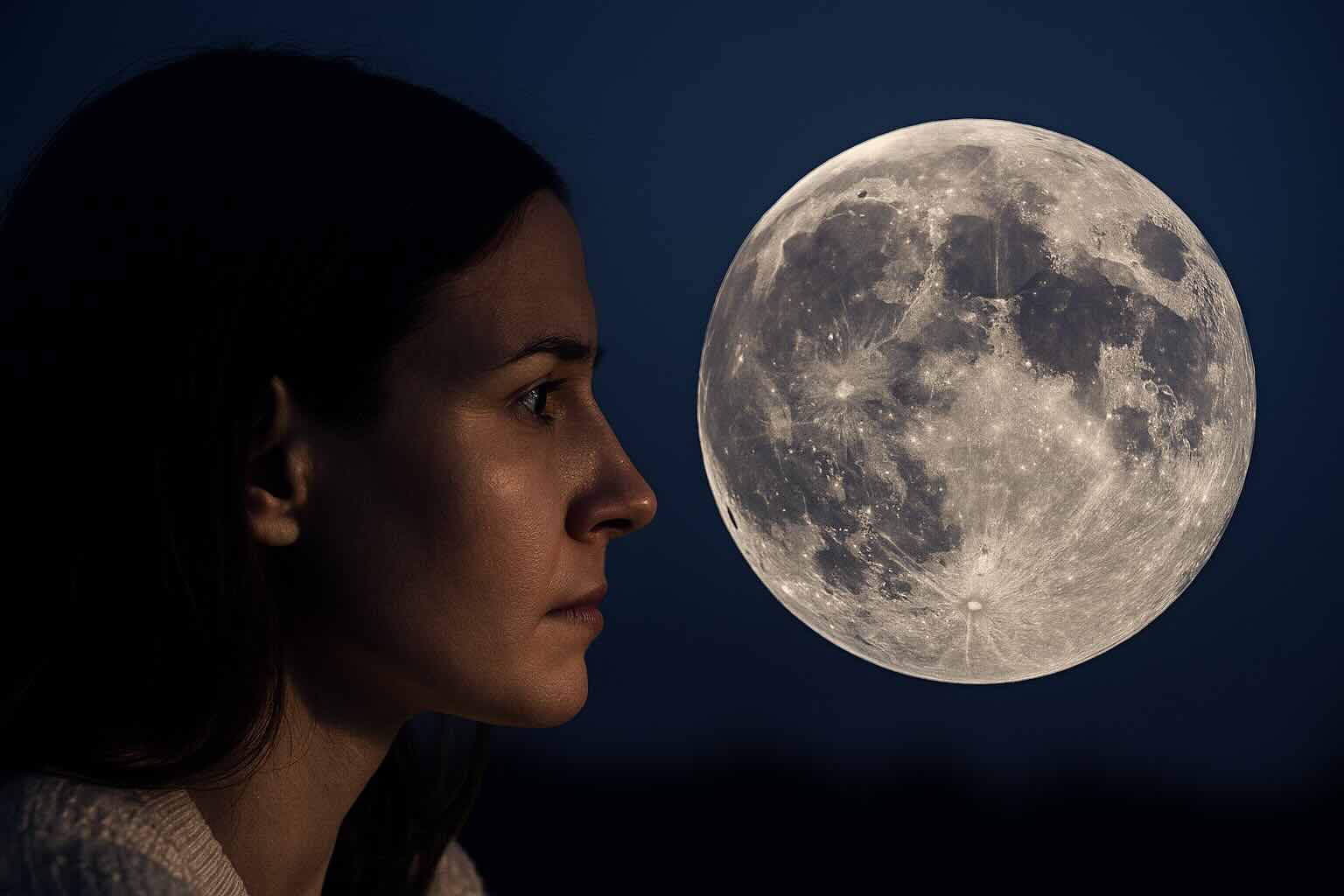The moon has long fascinated humanity. From ancient myths to modern science, people have wondered whether its glow influences our minds and bodies. Does the full moon really change our mood? Can lunar cycles disrupt sleep? And why have so many cultures linked the moon to madness, mystery, and transformation?
The Moon in Myths and Legends
For thousands of years, the moon has carried symbolic power. In Greek mythology, Selene was the goddess of the moon, guiding her silver chariot across the sky. In Roman culture, she became Luna, inspiring the word “lunatic,” once used to describe erratic behavior believed to occur under the full moon.
Other traditions echo similar beliefs. In medieval Europe, many thought full moons triggered madness or violence. In Native American folklore, each full moon was given a name tied to natural cycles, like the “Harvest Moon” or the “Wolf Moon.” These stories show how deeply lunar rhythms were woven into human life long before science offered explanations.
Does the Full Moon Affect Human Behavior?
Popular culture still links the full moon with unusual human behavior. Hospitals, police departments, and even pet owners sometimes report busier nights when the moon is bright. But are these patterns real, or just coincidence amplified by belief?
Most scientific studies suggest little evidence that the moon drives violence, crime, or psychiatric emergencies. Instead, researchers believe that the connection may come from human psychology itself — when people expect unusual things to happen under a full moon, they are more likely to notice or remember them.
The Moon and Sleep Patterns
One area where science does find intriguing connections is sleep. Several studies have suggested that people sleep less deeply and for shorter durations during the full moon. A 2013 study in the journal *Current Biology* found that participants took longer to fall asleep and had reduced deep sleep when the moon was full, even in dark, controlled environments.
The exact cause remains unclear. Some scientists think our biological clocks may still be tuned to lunar cycles, an evolutionary leftover from when bright moonlight influenced nighttime activity. Others argue that cultural awareness of the full moon may create subtle psychological effects that disturb rest.
Lunar Cycles and Women’s Biology
The moon’s 29.5-day cycle closely mirrors the average length of the human menstrual cycle. This similarity has led many cultures to associate the moon with fertility and feminine energy. Some studies have suggested weak correlations between ovulation timing and moon phases, though findings remain inconsistent and often debated.
While science does not confirm a direct biological link, the symbolic connection between the moon and human cycles continues to influence cultural practices and holistic health traditions around the world.
The Psychology of Moonlight
Moonlight itself may also play a subtle role in shaping mood and perception. Bright full moons historically offered extended hours of visibility at night, affecting hunting, farming, and social activities. Even today, some people report feeling more alert, restless, or inspired during a full moon.
Artists, poets, and musicians have long drawn creative inspiration from moonlit nights. This emotional response highlights how the moon, while not directly controlling behavior, remains a powerful psychological symbol that colors human imagination.
Scientific Caution and Continuing Curiosity
Despite centuries of fascination, most scientists remain cautious about attributing strong psychological effects to lunar phases. Studies often show small, inconsistent results, and many effects vanish when larger data sets are analyzed. Still, the persistence of lunar myths suggests that the moon touches something deeper in the human psyche — a connection that is part science, part story.
Interestingly, modern research is expanding beyond psychology into astronomy and medicine. For example, scientists are studying how astronauts’ circadian rhythms adapt on lunar missions, where “days” last 14 Earth days. Understanding these rhythms could reveal more about how the human brain and body synchronize with cosmic cycles.
The Moon as a Mirror of Human Experience
Ultimately, the moon may tell us less about our biology and more about our imagination. It serves as a mirror where humans project their hopes, fears, and creativity. Whether linked to werewolves, sleepless nights, or fertility, lunar myths reveal how humans have always sought meaning in the skies above.
At the same time, the moon’s gravitational power continues to shape Earth physically, and its presence still plays a subtle role in human life. While the science remains inconclusive on psychology, the moon’s place in culture and human identity is undeniable.
Conclusion: A Silent Influence
The moon may not control our minds, but it still shapes how we think, feel, and dream. From myths of madness to measurable effects on sleep, it remains a symbol of mystery and subtle power. As science explores further, one thing is clear: the moon will continue to inspire wonder, curiosity, and questions about our place in the cosmos.
